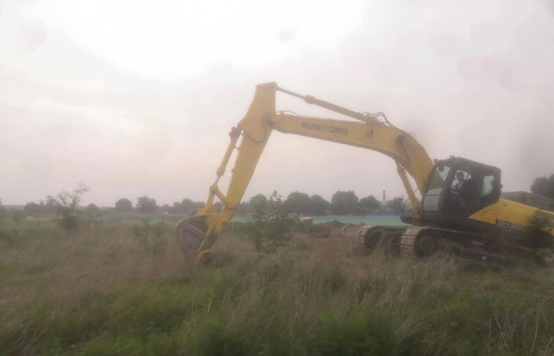Recently, as the country pays more and more attention to ecological civilization, the word "eco" has also become a hot word that everyone admires. As if the word "eco" is added, things themselves have an environmentally friendly feature. "Ecological Engineering" is a good example. The Dali Wuxi Ecological Governance Project previously reported by China Biodiversity Conservation and Green Development Foundation (CBCGDF) is under the banner of "Ecology” but is doing things that destroy the ecological environment. There are countless examples.
Now, Dr. Zhou Jinfeng, the Secretary-General of CBCGDF will standardize ecological engineering around this issue. Four principles around ecological restoration are put forward.
The first is the principle of saving. This is also the most basic principle. Because every drop of water and electricity we use in the process of carrying out ecological engineering is the price of ecology, and the price of ecology is the burden on ecology. In the process of restoration, if we can save water, electricity, manpower and material resources, it is the protection of ecology outside the project.
The second is the principle of natural. We need to carry out ecological restoration according to the laws of nature. If grass can grow naturally, we must not plant artificial turf; If the trees can grow naturally, we should reduce artificial planting. Nowadays, a large number of uniform and systematic grass-laying and tree-planting projects, although they look pleasing, are actually contrary to the laws of nature. Although some projects use local species, they do not respect the characteristics of the environment itself. For example, planting trees in coastal wetlands, we should try to avoid or reduce such projects.
Of course, the principle of natural is not the same as letting go of nature, it is to actively participate in nature while respecting it, in the face of large-scale sandstorms caused by river crevasses and river bed exposure, we cannot stand idly by. It is necessary to learn the experience of the ancient Dayu tamed the flood and built Dujiangyan, put the principles of natural first, and then engage in human participation. In this process, we should also learn to leave space scientifically to give nature a breathing space for growth.
The third is the limited principle. For example, to treat a lake, must we meet the drinking water standard to be qualified? No, high-standard governance is not necessarily scientific governance, because it also means more consumption and investment. Cleaner lake water needs more chemical reagents, which is a natural burden, even wind power and hydropower, which are called clean energy, also require equipment support and resource consumption.
The “Changzhou Toxic Land Case” of that year was heavily engaged in repairing the land contaminated by chemical plants. Digging out the soil, transporting it for baking, and washing it again, the whole process not only cost a lot of manpower and material resources, but also caused secondary pollution. Therefore, governance should be appropriate, and limited governance should be carried out based on natural characteristics and objective needs. For example, as a habitat for fish creatures, the lake must be managed to ensure that fish can survive in it.
The fourth is the macro principle. It includes systematic governance and overall grasp. When we repair a place, we need to consider the surrounding environment, and then determine the intensity of the treatment and repair of it, and the final standard. For example, in urban centers and suburbs, the intensity of management of insects or harmful species may be different. For the same reason, the discharge standards for estuaries and non-estimates are also different.
The overall grasp means the overall ecology, not a certain local influence. There was a contaminated land in the Tengger Desert. In order to remove this contaminated land, the local authorities dug other land to fill this vacancy. In the process of digging the land, it not only exacerbates the original pollution of the spreading land, but also destroys the original good soil. This is neither in line with the macro principle, but also violates the principle of natural and the limited principle.
In addition to these four principles, we also need to have a set of standards. Neither too high nor too low standards can be called good standards, and we need to adjust flexibly according to these four principles. For example, for some contaminated soil, we do not necessarily have to remove all the chemicals in it, but plant some castor seeds that are not artificially eaten. This is a very good ecological project.
Based on the above four principles of ecological restoration, one might ask, will the polluting enterprises' responsibilities be greatly reduced due to limited governance? No, companies that cause environmental pollution still have to bear full responsibility in law, however, according to the above four principles, it is not necessary to restore to the most original state during the repair process, and the difference between these just needs the relevant enterprises to bear the compensation.
The Nanyuan Wetland Park, which is currently under construction, aims to restore the original natural features. The original ecological environment is destroyed, which runs counter to these four ecological restoration principles. It is hoped that enterprises will take these four principles into consideration when carrying out related ecological restoration projects in the future, and do not blindly pursue artificialization.


(Photo credit: Beijing Bird Guard Squad)
By / Mingmei (Intern), Maggie
